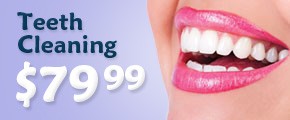
To prevent cavities and maintain good oral health, your diet–what you eat and how often you eat–are important factors. Changes in your mouth start the minute you eat certain foods. Bacteria in the mouth convert sugars from the foods you eat to acids, and it’s the acids that begin to attack the enamel on teeth, starting the decay process. The more often you eat and snack, the more frequently you are exposing your teeth to the cycle of decay.
Mouth-Healthy Foods and Drinks
The best food choices for the health of your mouth include cheeses, chicken or other meats, nuts, and milk. These foods are thought to protect tooth enamel by providing the calcium and phosphorus needed to remineralize teeth (a natural process by which minerals are redeposited in tooth enamel after being removed by acids).
Other food choices include firm/crunchy fruits (for example, apples and pears) and vegetables. These foods have a high water content, which dilutes the effects of the sugars they contain, and stimulate the flow of saliva (which helps protect against decay by washing away food particles and buffering acid). Acidic foods, such as citrus fruits, tomatoes, and lemons, should be eaten as part of a larger meal to minimize the acid from them.
Mouth-Healthy Foods and Drinks
Poor food choices include candy — such as lollipops, hard candies, and mints–cookies, cakes, pies, breads, muffins, potato chips, pretzels, french fries, bananas, raisins, and other dried fruits. These foods contain large amounts of sugar and/or can stick to teeth, providing a fuel source for bacteria. In addition, cough drops should be used only when necessary as they, like sugary candy, contribute to tooth decay because they continuously coat the teeth with sugar.
The best beverage choices include water (especially fluoridated water), milk, and unsweetened tea. Limit your consumption of sugar-containing drinks, including soft drinks, lemonade, and coffee or tea with added sugar. Also, avoid day-long sipping of sugar-containing drinks–day-long sipping exposes your teeth to constant sugar and, in turn, constant decay-causing acids.
 Find us on Facebook
Find us on Facebook

